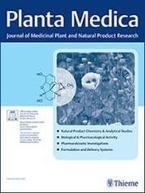« Humans can ingest gram amounts of plant secondary metabolites daily through diet. Many of these phytochemicals are bioactive beyond our current understanding because they act through weak negative biological feedback mechanisms, undetectable in vitro. Homeostatic-type assessments shed light on the evolutionary implications of the human diet from plants, giving rise to the metabolic plant feedback hypothesis. The hypothesis states that ancient diets rich in carbohydrates coincide with bulk dietary phytochemicals that act as nonspecific inhibitors of metabolic and inflammatory processes. Consequently, food-derived phytochemicals are likely to be equally effective as herbal medicines for these indications. In addition to the ubiquitous flavonoids, terpenoids, and fatty acids in the diet, the likely impact of chronic chlorophyll ingestion on human health is discussed, and data on its modulation of blood glucose levels are presented. A major deduction of this hypothesis is that starchy diets lacking plant secondary metabolites are associated with multimorbidity (lifestyle diseases) including obesity, type 2 diabetes, and cardiovascular disease. It is proposed that the intake of leafy vegetables, spices, and herbal remedies rich in phytochemicals matches the transition and genetic adaptation to early agriculture, playing a compensatory role in the mismatch of old genes and new diets. »
Jürg Gertsch
Planta Med
DOI: 10.1055/s-0042-108340



 Your new post is loading...
Your new post is loading...








« A must-read on how we shaped our diet, how our diet shaped us and how our current diet may shape us way more than we think. And how we should cure what can be cured by our diet with our diet before digging for hypothetical magic bullets. »
J.